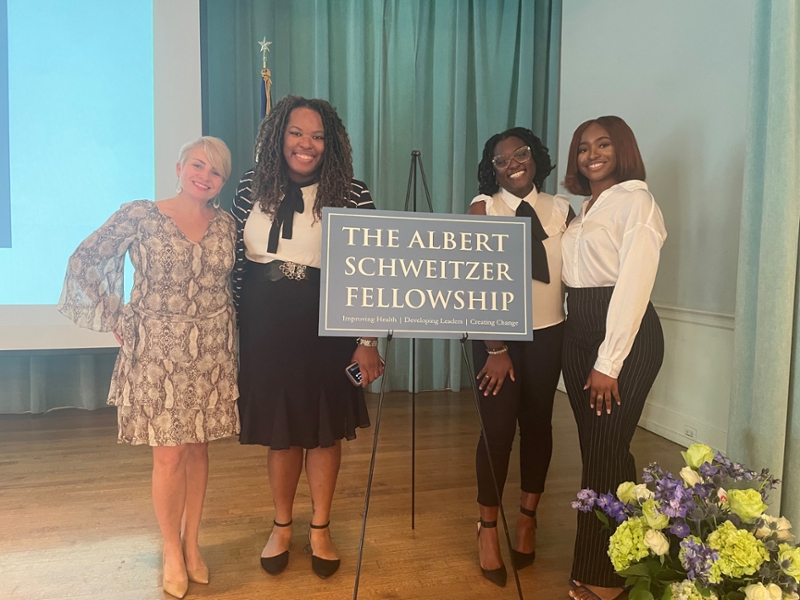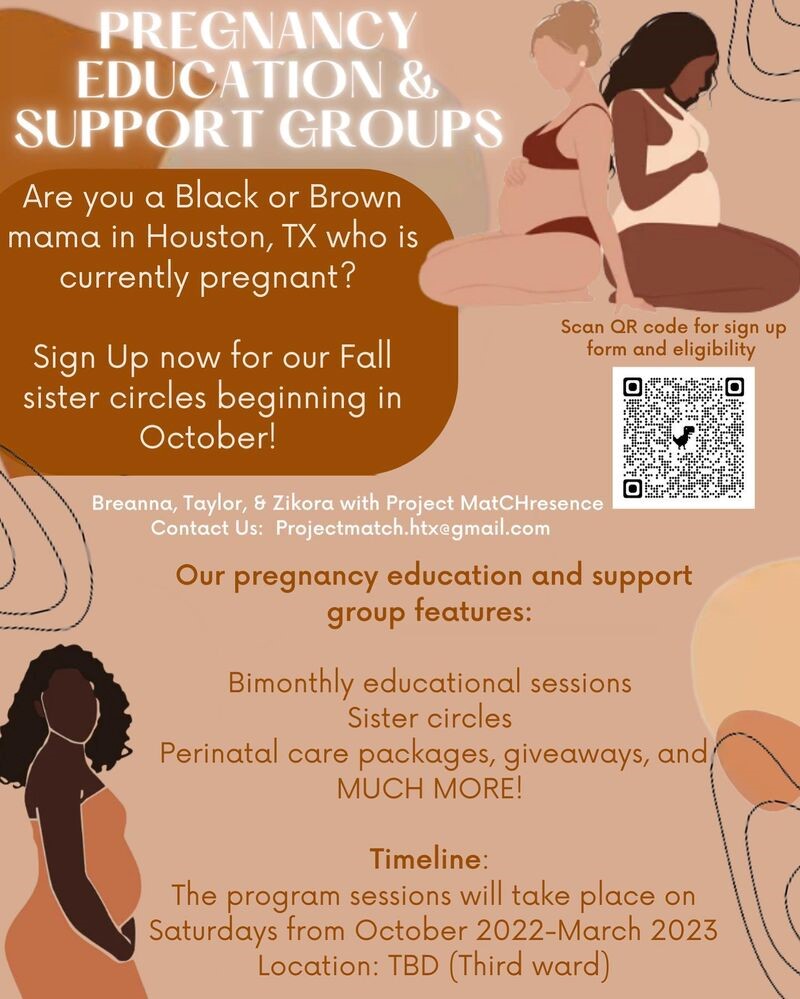

Black and Native American women are two to three times more likely to die from pregnancy-related complications than white women. More than 80 percent of these deaths are potentially preventable according to the recently released report from the Centers for Disease Control and Prevention.
In the Houston area, these maternal morbidity disparities are seen largely in a specific group of zip codes, many bordering UH in Third Ward, according to McClain Sampson, M.S.W., Ph.D., associate professor at the Graduate College of Social Work and principal investigator with the UH Healthy Start program. She emphasized the focus on zip codes because “research shows consistent disparities in birth outcomes depending on race and geography.”
Three University of Houston medical students – Breanna Chachere and Zikora Stephens from the Class of 2024, and Taylor Jackson from the Class of 2025 at the Tilman J. Fertitta Family College of Medicine– are working to improve maternal health outcomes in the Houston area.
“Research has shown increasing access to preconception, prenatal, and postpartum care and education can reduce pregnancy-related complications,” said Chachere, a Houstonian who is passionate about addressing perinatal health inequities among communities of color, increasing health care access, and championing community advocacy.
The three 2022-23 Albert Schweitzer fellows launched their fellowship project MatCHrescence, which focuses on peer mentoring to increase support for the reproductive wellness needs of women of color who are pregnant and postpartum in Houston.
The very name of the project shows the thoughtful approach of the students. It is based on the term “matrescence,” which is the physical, emotional, hormonal and social transition experienced in the process of becoming a mother, but the name also refers to maternal and child health.
“As a woman myself, I have experienced how often women neglect their health to care for others while also experiencing marginalization and exploitation in society,” said Jackson, who has wanted to be a doctor since childhood. “I want to create a bridge of trust and knowledge between the medical field and underserved communities to help improve health autonomy.”
How will the project work?
The mentoring groups, which the students refer to as “sister circles,” will meet twice a month between October 2022 and March 2023 in Third Ward. The goal is to offer 12 free educational and supportive sessions for participants on Saturdays.
The students are partnering with UH Healthy Start, the American Heart Association, and the Humana Integrated Health System Sciences Institute at UH – organizations that share a similar mission and commitment -- to serve the Houston area via the development of communication products and a health-based curriculum. In addition to building awareness and providing education, the group will also connect participants to resources, offer care packages and have giveaways.
“All research points to the importance of good physical and mental health during pregnancy to help ensure healthy childbirth and postpartum. Health is affected by where we live and work, access to quality healthcare, poverty, housing, and mental health,” Sampson said. “Seeking support is critical at this time for pregnant and postpartum women.”
For more information about the MatCHrescence program and the support groups, email Projectmatch.htx@gmail.com
The students and the partners hope their coordinated efforts will make a difference in the Houston community.
“One preventable maternal death is one too many. Each death is a real mom who is no longer here,” said Dr. Kimberly Pilkinton, a Fertitta Family College of Medicine faculty, an OB/GYN and a member of the Healthy Start Community Action Network. “A single maternal death impacts that woman’s family, friends, her own children, and community more than any of us dare to imagine.”
In addition to maternal death, many families face short- or long-term maternal morbidity or severe health complications, Pilkinton said.
“I am thrilled to have our medical students working with the Albert Schweitzer Fellowship to help tackle some of the issues related to maternal health, which in the long run can impact family and community health,” she added.